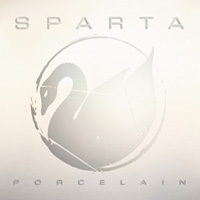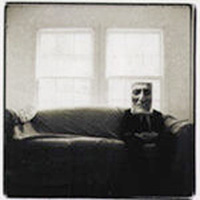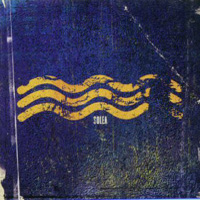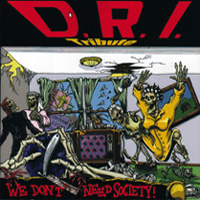 Sparta
Sparta
Porcelain (Geffen)
by Tim Den
Sparta guitarist/vocalist Jim Ward has said that the title of this new record represents a duality similar to that of the band’s: Durable yet fragile. A combination of post-punk’s aesthetics and a soft human heart, one might say. Well, the same metaphor could be used on the band’s catalog so far, at once riddled with brilliance and shortcomings.
Sparta’s last full-length, Wiretap Scars, surpassed expectations by being more melodic, more infectious, and more reliable than At The Drive-In, instantly turning tracks like “Collapse” into classics. But it certainly could’ve used a better production. Jerry Finn’s knob-twiddlin’ practically sounded like child’s play compared to Rich Costey’s work on The Mars Volta’s full-length. The guitars were brittle, the drums rickety, and the overall performance less than committed. If it weren’t for the songs themselves being so undeniably strong, Wiretap Scars would’ve been a mess and a half. But the duality of Sparta pulled through. But will it do the same for Porcelain?
It certainly tries to. But despite the improved production and the emotionally-involved performances, the other side of the scale proves to be heavier than ever this time. At 15 songs, Porcelain simply contains too many fillers. At least half the songs should’ve been b-sides or scrapped altogether, cuz their presence on the album adds nothing but unnecessary baggage. Unconvincing structures and vocal lines permeate the likes of “Death in the Family” and “Travel by Bloodline,” a damn shame, especially given the touching nature of the lyrics. The sentiments deserve better sonic surroundings which Sparta just couldn’t provide.
And while little “intermissions” such as “Syncope” and “P.O.M.E.” clean the palette (especially the former, where drummer Tony Hajjar’s arrangements prove just how far he has come in his infatuation with drum’n’bass), they’re all but cancelled out by the biggest sore of Porcelain, the eight-plus minutes of “From Now to Never.” Stretching boredom through pointless “atmospherics,” the song begs to be shot down like a dying horse in all of its meaninglessness. The listener is put through uneventful idea after uneventful idea, until repetition ends with more repetition via an acoustic guitar and bongos (yes, bongos). Oh duality, however can you overcome such obstacles?
Up until “Lines in Sand,” Porcelain looked to finally shed Sparta’s existence in contradictions. But alas, there was no escaping, as the negatives continue to haunt the positives in everything the band touches. At least we’ll be able to program our CD players to weed out the dark from the light and experience what could’ve been Sparta’s emancipation.
(www.geffen.com)



